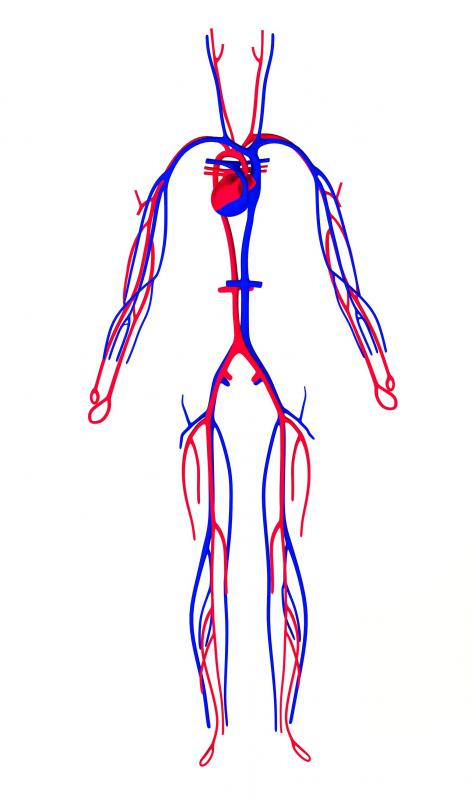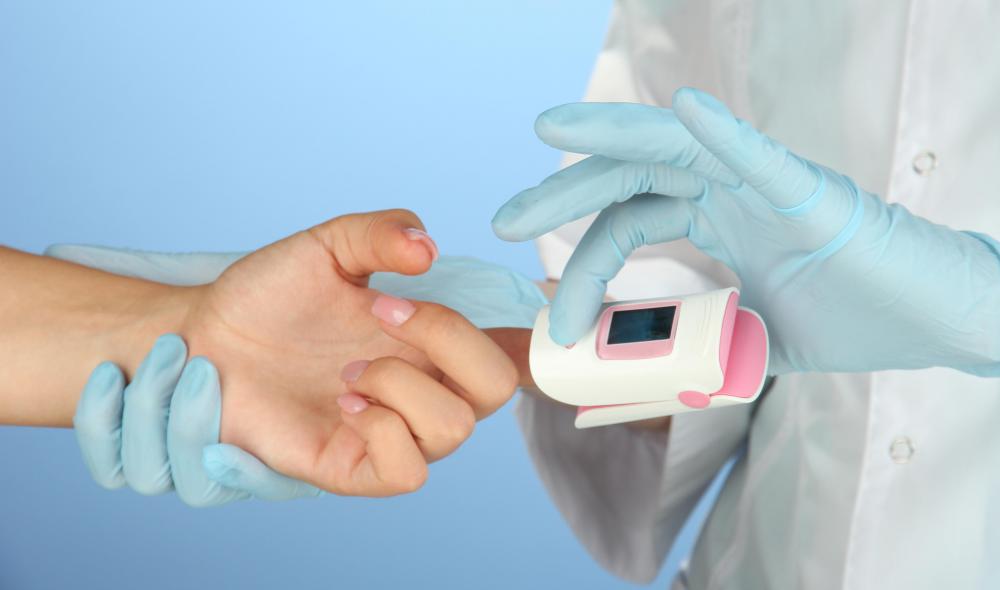At WiseGEEK, we're committed to delivering accurate, trustworthy information. Our expert-authored content is rigorously fact-checked and sourced from credible authorities. Discover how we uphold the highest standards in providing you with reliable knowledge.
What does a Vascular Technician do?
A vascular technician is a medical health professional who helps doctors and nurses care for patients with various heart problems and circulatory system disorders. He or she often ensures that paperwork and medical histories are filled out, conducts initial screenings of new patients, and operates testing equipment. A vascular technician analyzes test results and consults with doctors to determine the most appropriate treatment plan.
In hospitals, cardiovascular clinics, and private practices, technicians are needed to conduct patient interviews and review medical histories to aid in the proper diagnosis of a condition. Technicians often sterilize and prepare examination rooms, help patients get ready for procedures, and set up testing equipment. A vascular technician usually checks a patient's vital signs and conducts a preliminary physical examination before beginning a test.

Technicians must have specialized knowledge of several different pieces of complex testing equipment. They frequently operate ultrasound devices and electrocardiograph equipment to evaluate heart conditions, monitor pulse rates, and check for abnormalities in blood flow. Those who work around x-ray and sonography machines must take extra precaution to prevent overexposing themselves and their patients to high levels of radiation. Technicians carefully watch monitors and note the presence of any suspicious tissue, fluid, or activity.

After tests are completed, technicians evaluate the results and determine if future medical care is necessary. When abnormalities are discovered, technicians report their findings to cardiovascular doctors and surgeons who can devise the best strategy for treatment. Vascular technicians often assist physicians and surgeons in conducting subsequent medical procedures.

To become a vascular technician, a person must typically complete a two to four year training program at a community college or university. Most new technicians work alongside experienced professionals for a certain period of time to learn about the fundamentals of diagnosis and treatment, the different procedures and equipment involved in the job, and how to communicate effectively with other health professionals. Some states and countries require technicians to pass licensing exams before practicing independently. Additional certification is not always required to work as a vascular technician, though many new workers choose to take certifying exams administered by private organizations to improve their credentials and chances of finding employment.

There is a steady need for qualified vascular technicians in all job settings. Technological advances in testing equipment allow knowledgeable professionals to perform more effective examinations without resorting to invasive procedures. Many technicians choose to engage in continuing education to stay up-to-date on the latest technology and to guarantee the best possible treatment for their patients.
AS FEATURED ON:
AS FEATURED ON:















Discussion Comments
My cousin is a vascular technician. She really wanted to get into the healthcare field but didn't want to do nursing - too gross! So she did vascular and ultrasound technician.
She had her pick of jobs and doesn't have to work with bodily fluids. Plus, she only had to go to school for two years and after just a few years, she's making mid five figures. More than a starting teacher with a master's degree, let's just say.
Post your comments